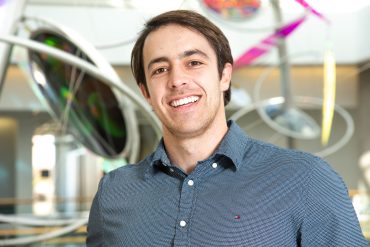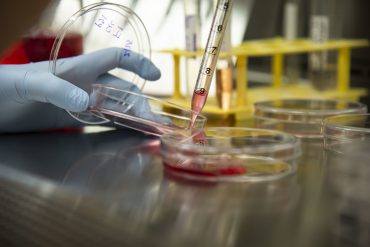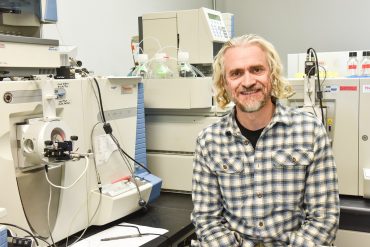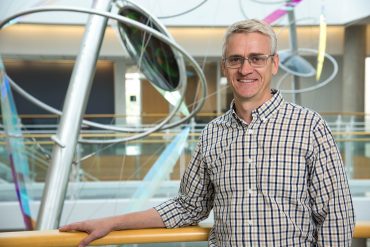Regulation of Fatty Acid Synthesis in Autotrophs
Jay J. Thelen Lab
Research Interests
The Thelen lab’s research interests include metabolic regulation, seed development, plant biochemistry, and the regulation of de novo fatty acid synthesis. These areas of study have the potential for broad impact on both agriculture and human health. Using cutting-edge mass spectrometry instrumentation, Thelen has conducted research on the factors that affect the composition of seeds to determine why certain nuts and seeds contain higher percentages of oil than others. His lab monitors protein expression and modification, knowledge that may be used to improve crop plants such as canola and soybean. He also developed and patented a method to accurately quantify seed allergens in a high-throughput, multiplexed manner; a priority for seed biotechnology and food industries.
LAB MEMBERS

In the news

June 6, 2022
Seeing the bigger picture through applied research projects
Investigators at Bond LSC take steps to apply basic research By Cara Penquite | Bond LSC Photo by Lauren Hines | Bond LSC Scribbling in a lab notebook and planning experiments tucked between shelves of equipment, it’s easy to fixate on day-to-day lab operations. But scientists also face the challenge of finding how research can improve the world around us. “The direction, the vision of the lab, ultimately comes from the principal investigator that bridges the research into applied directions,” said Jay Thelen, biochemistry professor and Bond LSC principal investigator Despite the focus on basic…

Feb. 23, 2021
ACCase: The Gatekeeper of Plant Oil
Jay Thelen sitting amongst Liquid Chromatography-Tandem Mass Spectrometers in the lab. | photo by Becca Wolf, Bond LSC By Becca Wolf | Bond LSC Two decades ago Jay Thelen speculated an unknown protein anchored acetyl-CoA carboxylase (ACCase), an important enzyme complex, to the chloroplast membrane. He even published a paper about it, not knowing exactly what the membrane protein was. Flash forward and Thelen, a professor of biochemistry and principal investigator at Bond Life Sciences Center, now knows exactly what it is, which is detailed in a recent paper in Nature Communications. And this finding could potentially…

Oct. 23, 2017
Modifying molecules with lasers
Jay Thelen Brief by Roger Meissen| Bond LSC What do lasers have to do with food allergies? Bond LSC’s Jay Thelen was recently part of a team that looked at how short laser pulses might be used to modify peptides and proteins to make foods edible for those with specific allergies. Thelen, a biochemistry professor, joined scientists from his department, engineering and Denmark to explore this possibility. What they found was a way to modify molecules quicker and more cheaply than current chemical methods. This could potentially lower costs for specific applications in medicine, pharmacology,…
